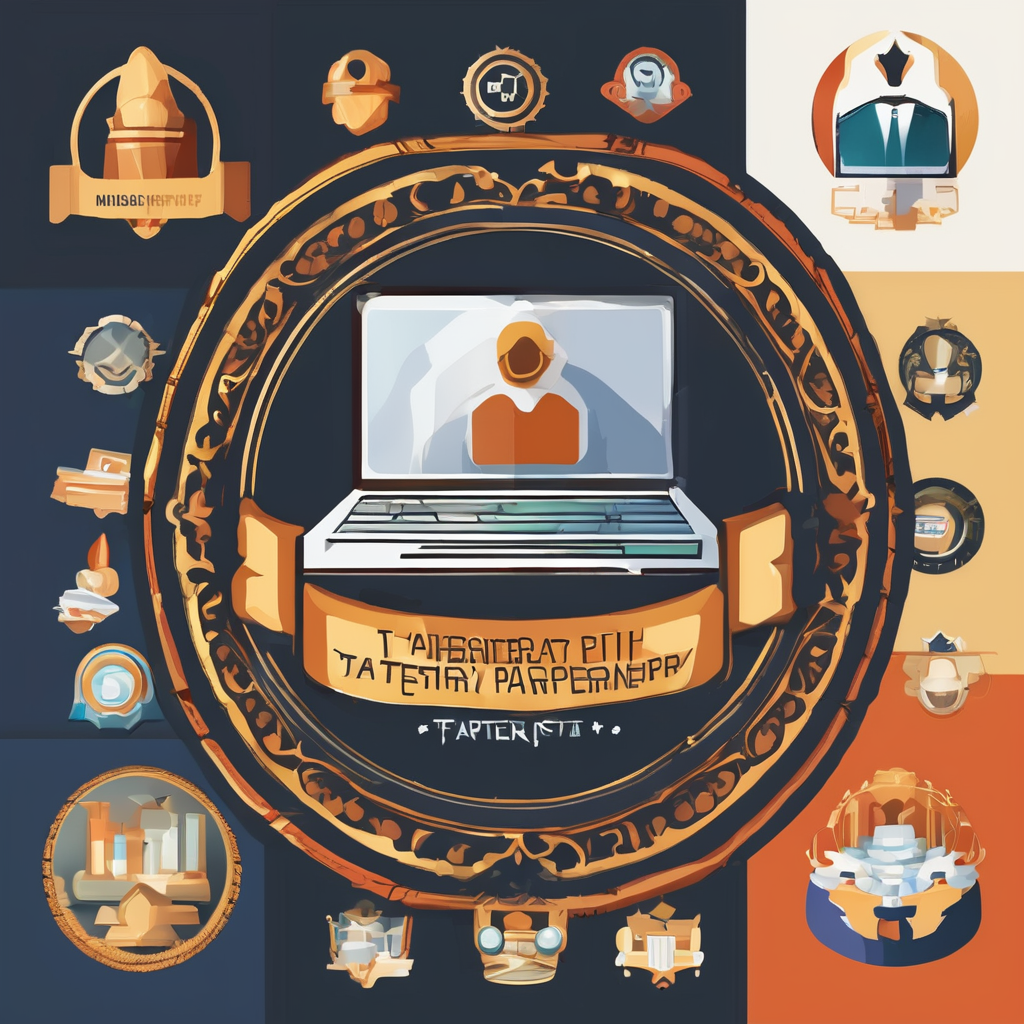Key Human Resource Trends Shaping UK Companies in 2024
As UK organisations embrace emerging HR trends, 2024 emphasizes digital innovation, flexibility, and inclusivity. A dominant theme is digital transformation that integrates advanced HR technologies to streamline recruitment, talent management, and employee engagement. This evolution in HR management developments enables companies to leverage AI and automation tools, enhancing efficiency while freeing HR teams for more strategic duties. Automation in UK HR facilitates better candidate screening and personalised employee experiences.
Simultaneously, hybrid and remote work models are now central to UK HR 2024. Employers adapt workplace policies to balance flexibility with productivity, recognising diverse employee needs. This shift demands new approaches to maintain team cohesion and monitor performance across physical and virtual environments.
Additional reading : Maximizing Efficiency in UK Business Management: Key Strategies to Implement
Additionally, the focus on inclusive workplace cultures intensifies. Organisations invest in diversity initiatives and foster allyship programmes to create environments where all employees feel valued. This holistic approach to HR reflects broader societal priorities and strengthens business resilience.
Together, these trends reshape how UK companies manage talent, promote engagement, and compete in 2024. Understanding and integrating these emerging HR trends UK ensures HR leaders remain responsive and proactive in a rapidly evolving landscape.
Have you seen this : What are the Common Misconceptions About UK Business Management?
Impact of Digital Transformation on UK HR Practices
Digital transformation significantly reshapes digital HR within UK companies, bringing advanced tools and automation to everyday HR functions. Integration of HR technology UK such as AI-driven recruitment software streamlines candidate screening, improving both speed and quality of hires. Automation in HR enables routine tasks to be completed efficiently, freeing HR teams to prioritise strategic goals.
The use of HR analytics is another pivotal advancement, allowing data-driven decision-making processes that enhance workforce planning and talent management. By analysing patterns and employee metrics, organisations can optimise training, retention, and engagement strategies with greater precision.
Digital platforms also bolster employee engagement and collaboration, essential as hybrid and remote work models expand. These technologies support continuous communication and seamless cooperation regardless of physical location. Companies adopting these digital HR tools demonstrate increased agility and responsiveness to workforce needs.
In sum, automation in HR and smart technology adoption represent defining features of HR management developments in 2024, dramatically reshaping how UK HR teams operate and deliver value to their organisations.
Hybrid Work and Workforce Flexibility in the UK
Hybrid work UK models continue to redefine organisational dynamics, blending remote and office-based roles to meet diverse employee preferences. In 2024, developing a flexible workplace is imperative for talent retention and engagement. Companies adopt adaptive policies that allow employees to tailor their work environments while aligning with business objectives. These arrangements present challenges in maintaining communication and team cohesion.
Sustaining productivity in hybrid teams requires clear expectations and transparent performance metrics. Use of collaboration platforms and regular check-ins helps bridge physical divides. Additionally, managers must be skilled in remote leadership to support and motivate distributed workforces effectively.
From a legal perspective, evolving remote workforce trends necessitate careful consideration of health and safety obligations, data security, and employment contracts. Organisations must update policies to comply with UK labour regulations governing flexible work arrangements.
In practice, successful hybrid work implementation hinges on integrating technology with human-centric management practices. Offering employees choice fosters autonomy and satisfaction, which boosts overall organisational resilience. In sum, hybrid work UK shapes HR management developments by promoting agility, inclusivity, and balanced productivity within evolving workplace models.
Diversity, Equity, and Inclusion Initiatives in UK HR
Building truly inclusive workplace UK environments goes beyond token representation. In 2024, diversity and inclusion UK efforts focus on embedding DEI principles deeply into organisational culture and practices. Companies are moving from awareness campaigns to sustained DEI strategies that influence recruitment, promotion, and employee engagement.
Employee resource groups (ERGs) and allyship programmes have proven effective in fostering community and support within diverse workforces. These initiatives empower employees to bring their whole selves to work, thereby enhancing belonging and collaboration. For example, ERGs dedicated to ethnicity, gender, or disability support create visible networks that influence policy and culture positively.
Measuring the impact of diversity and inclusion UK is critical. Organisations increasingly use data analytics to assess representation, pay equity, and employee sentiment. This evidence-based approach ensures that HR management developments in DEI translate into real-world improvements for workforce diversity and inclusivity.
Ultimately, investing in comprehensive DEI strategies positions UK companies to attract diverse talent and meet evolving societal expectations. These efforts are integral to the broader emerging HR trends UK shaping company culture and competitive advantage in 2024.
Employee Well-Being and Mental Health Support
In 2024, employee well-being UK initiatives have become central to HR management developments, addressing growing concerns about workplace stress and mental health. Organisations increasingly expand workplace mental health resources, introducing support structures such as counselling services, mental health days, and wellbeing apps. These efforts respond directly to employee needs and contribute to a more supportive work environment.
Managers and HR teams play a pivotal role in fostering a culture prioritising mental wellness. Training equips leaders to recognise signs of distress and encourages open communication about mental health. This proactive approach helps reduce stigma and promotes early intervention.
Research shows that prioritising employee well-being UK correlates with increased productivity, lower absenteeism, and higher employee engagement. As part of HR wellness trends, companies implement regular wellbeing surveys and integrate mental health goals into performance reviews. This data-driven focus enables continuous improvement in workplace support.
In hybrid and remote work contexts, maintaining visibility of employee well-being can be challenging. Digital platforms and check-ins are vital tools in these settings, ensuring ongoing connection and support irrespective of location. Thus, mental health initiatives are now foundational to overall HR management developments and the future of people-centred UK HR 2024 strategies.
Navigating New UK Labour Laws and Compliance
Staying abreast of UK labour law updates is crucial amid evolving regulations impacting HR management developments. Recent legislative changes include revisions to worker rights, data protection, and hybrid work policies—all significant for UK HR 2024 frameworks. Employers must understand these updates thoroughly to maintain legal compliance and protect organisational interests.
Practical steps for achieving employment compliance involve regularly reviewing policies against current laws, updating employee contracts, and ensuring transparent communication of rights and responsibilities. For example, changes in flexible working rights require clear procedural adjustments, ensuring remote and hybrid workforce arrangements meet legal standards.
Training HR teams on HR legal changes is essential. Regular sessions focused on legislative shifts equip HR professionals to interpret and apply laws effectively, reducing risk and enhancing governance. This proactive approach aligns with emerging HR trends UK by integrating legal compliance into broader strategic HR initiatives.
Moreover, leveraging technology can assist compliance through automated alerts and audit trails for policy updates or contract renewals. Such tools reinforce the capacity of UK companies to navigate complex labour environments confidently, supporting robust HR management developments that uphold standards and foster organisational resilience.
Upskilling, Reskilling, and Talent Development Strategies
Identifying future skill needs is central to effective talent development strategies within the shifting landscape of emerging HR trends UK. UK companies must anticipate evolving roles shaped by digital transformation and hybrid work. This foresight enables targeted upskilling UK and reskilling employees to bridge skill gaps and maintain competitive advantage.
Designing impactful learning programmes requires blending technology-enhanced training with personalised development paths. Virtual classrooms, microlearning modules, and on-demand resources are increasingly common, aligning with modern employee preferences. These approaches support continuous skill acquisition and adaptability, crucial in UK HR 2024 environments.
Collaborations with educational institutions and industry training providers expand learning opportunities. Such partnerships facilitate access to specialised courses and certifications, embedding workforce development into broader talent pipelines. This strategic integration of external expertise complements internal training efforts, creating comprehensive talent development strategies.
Proactively managing upskilling and reskilling initiatives enhances employee engagement and retention by demonstrating investment in career progression. Moreover, these efforts improve organisational agility, enabling faster response to market changes. In sum, prioritising skill development is a defining component of HR management developments shaping UK companies in 2024.
Actionable Insights for HR Leaders in the UK
Effective HR best practices UK start with embracing emerging HR trends UK purposefully. HR leaders should prioritise integrating digital solutions and flexible work models while fostering inclusive cultures, as these are core to UK HR 2024 success.
Implementing innovative strategies means using data analytics to measure employee engagement and productivity, allowing for timely adjustments based on insights. For example, applying actionable HR insights gained from workforce analytics helps tailor talent management approaches to specific organisational needs.
Real-world UK companies demonstrate that aligning HR management developments with business goals enhances strategic impact. Leaders are encouraged to adopt a holistic view that combines technology, culture, and compliance considerations. Training HR teams on emerging practices ensures agility in responding to evolving challenges.
Measuring the return on investment in new HR initiatives is vital. This involves setting clear metrics related to recruitment efficiency, employee retention, and well-being outcomes. By linking HR best practices UK with measurable business results, HR leaders can justify continued innovation and secure stakeholder buy-in.
In summary, adopting data-driven, inclusive, and adaptable approaches constitutes the foundation of successful UK HR 2024 leadership. This enables organisations to navigate complexity confidently while enhancing workforce potential and competitive advantage.





